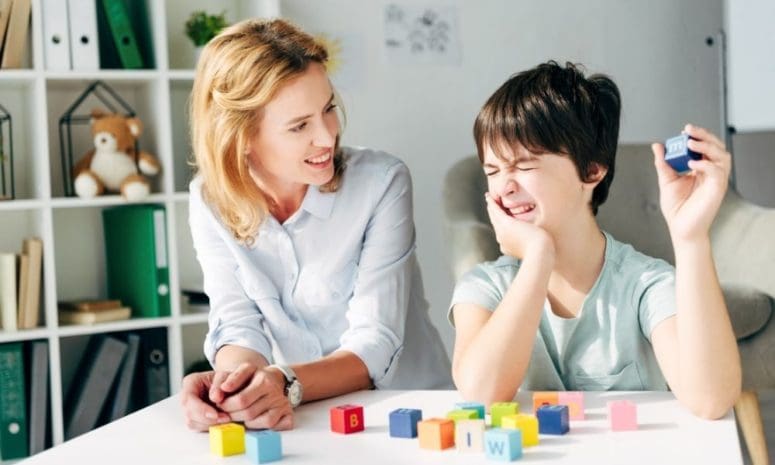Tips for Developing Social Skills in a Child With Autism

When your child is diagnosed with autism, you may feel relief in some ways. Finally, having answers can lift a weight off your shoulders. However, this news comes with an abundance of new questions as you try to learn the best ways to support your child. Helping children engage socially is pretty high on the list of things that parents want for their children. We know that to be a part of our society and engage with others, children need to learn how to socialize with one another, and much of this skill will rely on the work you do now with your kiddo. Following a few tips for developing social skills in a child with autism will benefit your whole family.
But first, let’s talk about the symptoms. Autism symptoms encompass a broad range of challenges that affect social interaction, communication, and behavior. Individuals with autism may exhibit difficulties in understanding and interpreting nonverbal cues, such as gestures and facial expressions, making it challenging for them to engage in reciprocal social interactions. Communication deficits often manifest in delayed language development or repetitive and limited speech patterns. Additionally, individuals with autism may display repetitive behaviors, intense focus on specific interests, and resistance to changes in routine. Sensory sensitivities, such as heightened or diminished responses to sensory stimuli, are also common autism symptoms. It is crucial to recognize and understand these signs early on to facilitate timely intervention and support for individuals with autism spectrum disorder.
Modeling and Imitation
When it comes to teaching a child with autism spectrum disorder (ASD) to develop appropriate social skills, you’ll need to model specific scenarios. Imitation is going to be a large part of helping your child engage with others. Empathy can be a difficult concept for people with ASD.
When engaging with your child, try to make sure you are using facial expressions and different tones of voice to portray your feelings. You may even spend time having your child identify emotions based on the faces and tones you display. Practicing modeling and having your child imitate, you will allow them to understand when and how facial expressions and voice tones can subtly relay information to other people.
Prompting and Reciprocity
When helping your child develop appropriate social skills, you may need to use prompts. Try bumping your arm on a nearby object and saying, “Ow!” Prompt your child to ask if you are okay. Do this repeatedly and experiment with other situations that would warrant a response.
Reciprocity is essential when engaging socially with people. Have a conversation with your child and ask them a question such as, “How are you?” This should prompt your child to answer and gives them an opportunity to reciprocate the greeting. Lack of reciprocity isn’t only a characteristic of people with ASD. It merely comes less naturally with a child on the spectrum, and that’s okay. Don’t give up. It’s great to practice these skills as a family to enhance everyone’s social skills.
Reinforce Positive Behavior
In shaping social behaviors, positively reinforcing what your child is doing well is crucial. You will want to use behavior-specific praise, so your child knows what is working and what isn’t. For example, say something along the lines of, “Great job asking Amy if she was okay when she got hurt.” Positive reinforcement may also be met with rewards that further help develop your child’s skills, such as playing a game or using exercise equipment and activities that strengthen speech, body autonomy, and cognitive functions while still allowing for a bit of fun.
These are merely a few tips for developing social skills in a child with autism. Consider also exploring ABA therapy near me for ideas from a local ABA therapist. Social development may always take a bit of prompting, but repetition and commitment will surely improve your child’s ability to engage with those in the world around them.









